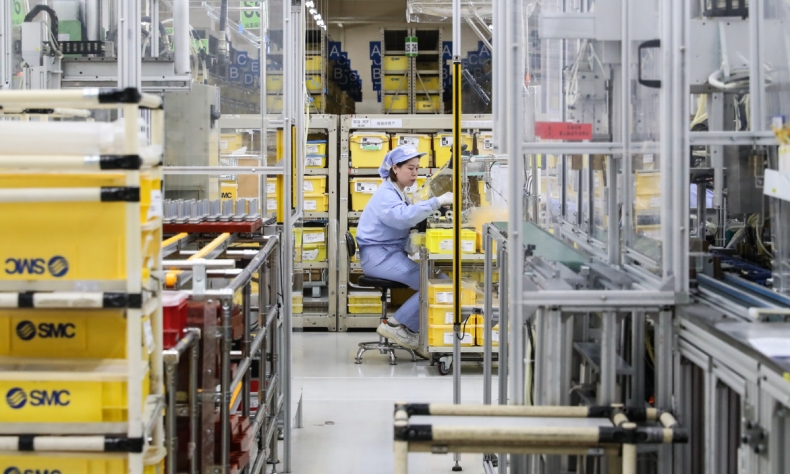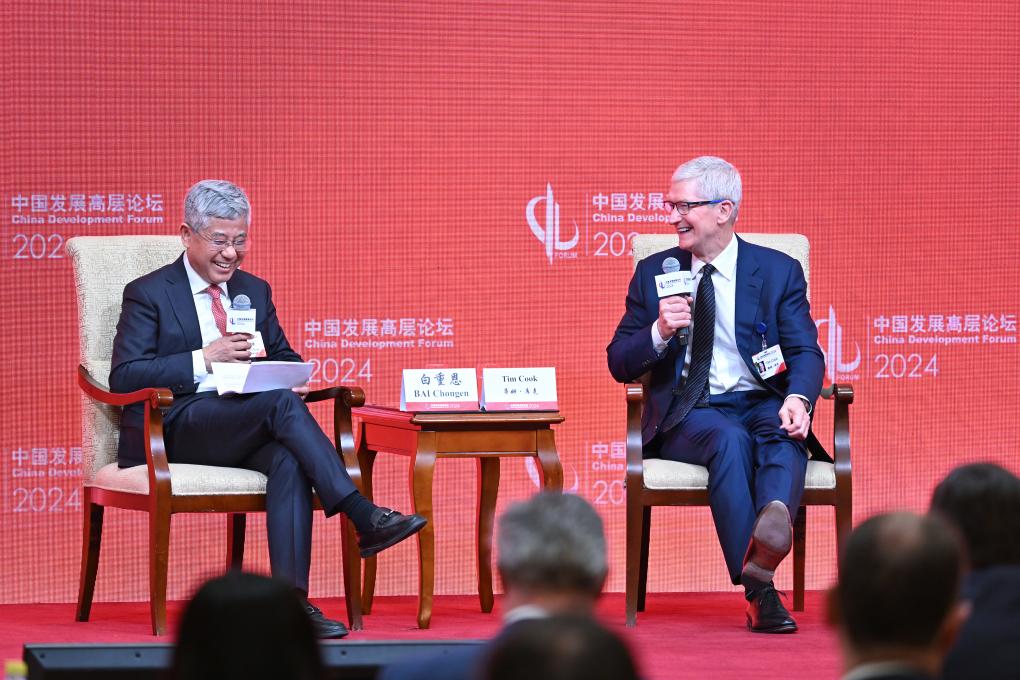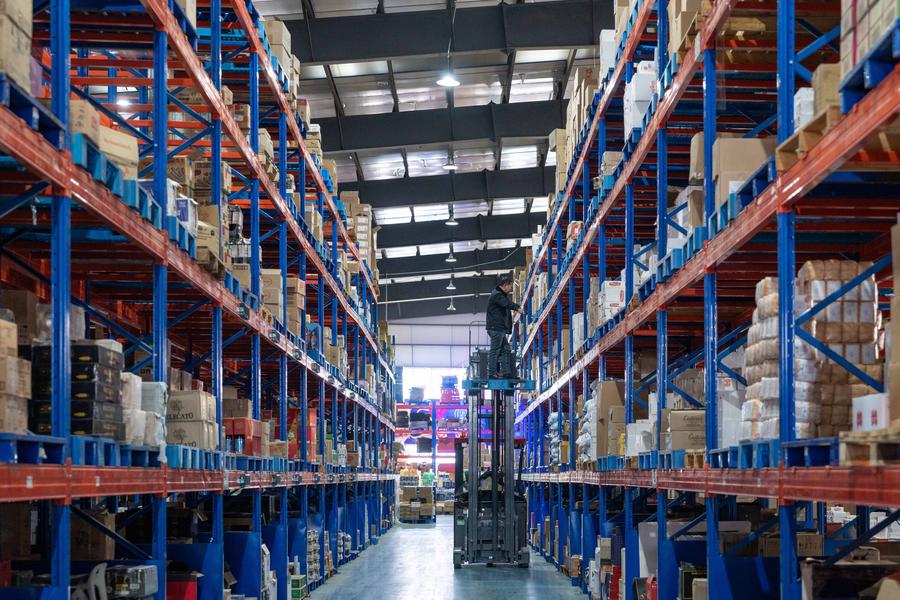Investing in the Future

Foreign investors are confident of the Chinese market despite Western media’s ‘foreign capital leaving China’ rhetoric.
While the world economy faced multiple challenges and had a slow recovery in 2023, China’s GDP grew by 5.2 percent, surpassing the growth of many leading economies. China’s robust growth and commitment to high-quality development and high-standard opening-up will continue to provide new opportunities for foreign investors.
Government commitments
At the end of March, a meeting and two major events in China demonstrated the country’s determination to welcome more foreign investors.
On March 27, Chinese President Xi Jinping met with representatives of the U.S. business, strategic and academic communities in Beijing. Xi said, “Last year, China registered one of the highest growth rates among the major economies and accounted for over 30 percent of global growth as before. This was due both to the hard work of the Chinese people and to international cooperation.”
Xi stressed the potential of the Chinese market by saying that “China is planning and implementing a series of major steps for comprehensively deepening reform, and steadily fostering a market-oriented, law-based, and world-class business environment. This will create broader development space for U.S. and other foreign businesses.”
To attract and utilize foreign investment, the State Council issued an action plan on March 19. It covered expanding market access, enhancing the Chinese market’s appeal for foreign investment, fostering a level playing field, and better aligning domestic rules with high-standard international economic and trade rules.
Meanwhile, the China Development Forum (CDF), themed “The Continuous Development of China,” was held in Beijing on March 24-25. It was attended by around 110 heads of major foreign multinationals and international organizations, such as Apple’s CEO Tim Cook and IMF’s Managing Director Kristalina Georgieva, as well as Nobel laureates, institutional representatives and scholars. Their participation reflected China’s desire for more cooperation with foreign businesses and institutions and vice versa.

In his keynote speech, Chinese Premier Li Qiang reiterated China’s efforts to create a favorable condition for foreign investors, saying “China will continue to foster a world-class business environment that is market-oriented, law-based and internationalized, steadily advance institutional opening-up, and link with the world at a higher level of openness.” He said China is ready to share with the world the opportunities created by its sustained development and work with all parties to create “a bright future of common development.”
Then came the Boao Forum for Asia (BFA) Annual Conference 2024, held from March 26-29. Themed “Asia and the World: Common Challenges, Shared Responsibilities,” it attracted nearly 2,000 representatives from over 60 countries to discuss topics like “global economy,” “technological innovation,” “social progress,” “international cooperation,” and “tackling challenges.”
Zhao Leji, China’s top legislator, highlighted China’s attractiveness for business in his keynote speech at the opening plenary of the forum, saying: “Apart from being a main trading partner of more than 140 countries and territories, China is a primary source of investment for more and more countries and one of the most important investment destinations for most countries in the world.”
The message from the Chinese government is loud and clear: The Chinese market is wide open and full of opportunities. China welcomes all foreign investors.
Confidence in the Chinese market
According to data released by China’s Ministry of Commerce (MOFCOM), in the first two months of 2024, foreign direct investment (FDI) in China reached US $29.75 billion, down by almost 20 percent year on year. This figure made some doubt investors’ confidence in the Chinese market. However, the guests at the BFA Annual Conference 2024 thought otherwise.
David Hill, CEO of Deloitte Asia Pacific, said at a sub-forum on “Investing the Future of Asia,” “When we discuss the drop in the FDI inflow into China, we must consider the fact that the previous base is too high.” The drop doesn’t mean China’s economy has encountered problems, he assured the session.

Michele Geraci, former Undersecretary of State at Italy’s Ministry of Economic Development, told China Today on the sidelines of the BFA Annual Conference that the decline has not dampened Italian investors’ passion in the Chinese market and he remained confident in its growth. Geraci had come with a delegation of Italian companies that would like to invest further in financial services and insurance in China, he added.
Xu Zhibin, deputy head of the State Administration of Foreign Exchange, called the trend of FDI in China in line with that in Asia and the rest of the world. “The fluctuation in China’s FDI is very normal from a broader and longer perspective,” Xu said.
For many businesses, the Chinese market is an attractive destination for investment. As China fosters new quality productive forces for high-quality development, many foreign investors have expressed their confidence in the Chinese market.
Francois David Martino, executive president and member of John Cockerill Executive Committee of John Cockerill Industry, a mechanical engineering group headquartered in Belgium, told China Today that the investment opportunities in China are very important as China is evolving in terms of development quality and consumption demand. “China is building trends like we have seen in electric vehicles… but there are [also] other products where China can be a trendsetter. And therefore, it’s important for us to be here and to be part of this development,” he said.
Charles Dallara, member of the Board of Directors of Partners Group, a Swiss-based private equity firm, told reporters, “We have confidence in our group’s future in China, and the rest of Asia. China has not just a large-scale labor force, but also skilled labor. You find very good leadership of engineers and scientists at the forefront of technological development, and we are encouraged about the prospects of continuing to invest in China.” He also said he is very pleased with the success of the previous investments.
According to MOFCOM, in the first two months of this year, the number of newly established foreign-invested enterprises in China reached 7,160, up by nearly 35 percent compared with the same period last year. The figure is a telling example that China remains attractive to foreign investors.
As Zhao Leji said in his speech, “Investing in China is investing in the future. All countries are sincerely welcome to board the ‘express train’ of China’s development and join hands to work for a global modernization featuring peaceful development, mutually beneficial cooperation and prosperity for all.”
 Facebook
Facebook
 Twitter
Twitter
 Linkedin
Linkedin
 Google +
Google +










